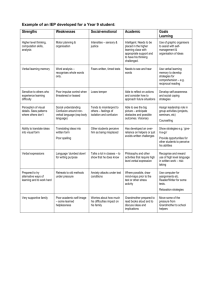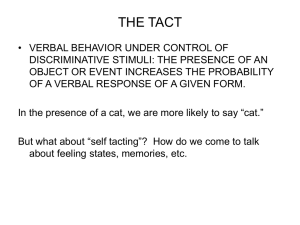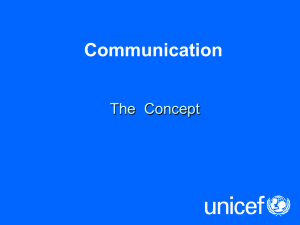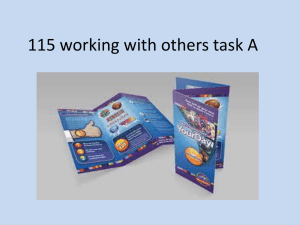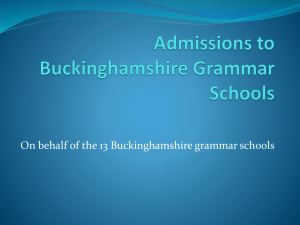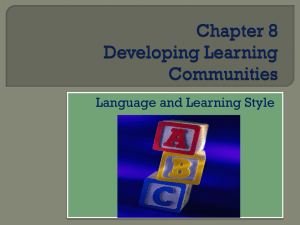Oct. 30 part b
advertisement
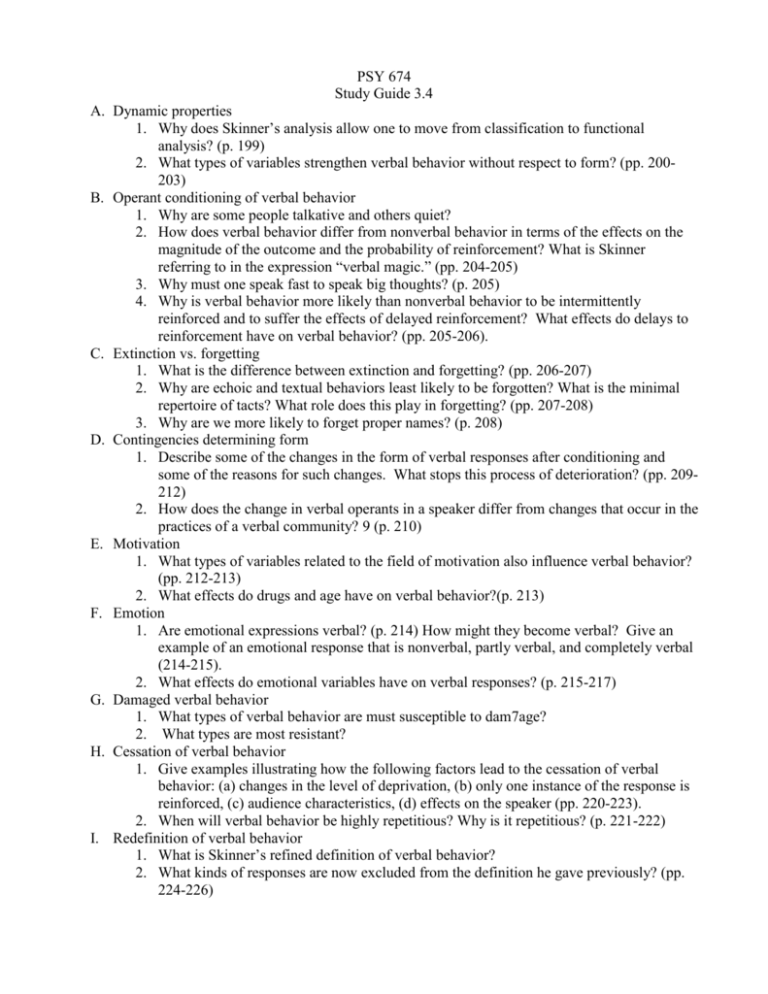
PSY 674 Study Guide 3.4 A. Dynamic properties 1. Why does Skinner’s analysis allow one to move from classification to functional analysis? (p. 199) 2. What types of variables strengthen verbal behavior without respect to form? (pp. 200203) B. Operant conditioning of verbal behavior 1. Why are some people talkative and others quiet? 2. How does verbal behavior differ from nonverbal behavior in terms of the effects on the magnitude of the outcome and the probability of reinforcement? What is Skinner referring to in the expression “verbal magic.” (pp. 204-205) 3. Why must one speak fast to speak big thoughts? (p. 205) 4. Why is verbal behavior more likely than nonverbal behavior to be intermittently reinforced and to suffer the effects of delayed reinforcement? What effects do delays to reinforcement have on verbal behavior? (pp. 205-206). C. Extinction vs. forgetting 1. What is the difference between extinction and forgetting? (pp. 206-207) 2. Why are echoic and textual behaviors least likely to be forgotten? What is the minimal repertoire of tacts? What role does this play in forgetting? (pp. 207-208) 3. Why are we more likely to forget proper names? (p. 208) D. Contingencies determining form 1. Describe some of the changes in the form of verbal responses after conditioning and some of the reasons for such changes. What stops this process of deterioration? (pp. 209212) 2. How does the change in verbal operants in a speaker differ from changes that occur in the practices of a verbal community? 9 (p. 210) E. Motivation 1. What types of variables related to the field of motivation also influence verbal behavior? (pp. 212-213) 2. What effects do drugs and age have on verbal behavior?(p. 213) F. Emotion 1. Are emotional expressions verbal? (p. 214) How might they become verbal? Give an example of an emotional response that is nonverbal, partly verbal, and completely verbal (214-215). 2. What effects do emotional variables have on verbal responses? (p. 215-217) G. Damaged verbal behavior 1. What types of verbal behavior are must susceptible to dam7age? 2. What types are most resistant? H. Cessation of verbal behavior 1. Give examples illustrating how the following factors lead to the cessation of verbal behavior: (a) changes in the level of deprivation, (b) only one instance of the response is reinforced, (c) audience characteristics, (d) effects on the speaker (pp. 220-223). 2. When will verbal behavior be highly repetitious? Why is it repetitious? (p. 221-222) I. Redefinition of verbal behavior 1. What is Skinner’s refined definition of verbal behavior? 2. What kinds of responses are now excluded from the definition he gave previously? (pp. 224-226) Objectives Describe some variables that strengthen verbal behavior without respect to form. Describe how operant conditioning affects the rate of verbal behavior. Extinction vs. forgetting Describe why verbal responses deteriorate and what stops this process. Give an example of each of the 4 factors that lead to the cessation of verbal behavior Describe Skinner’s redefinition of verbal behavior

